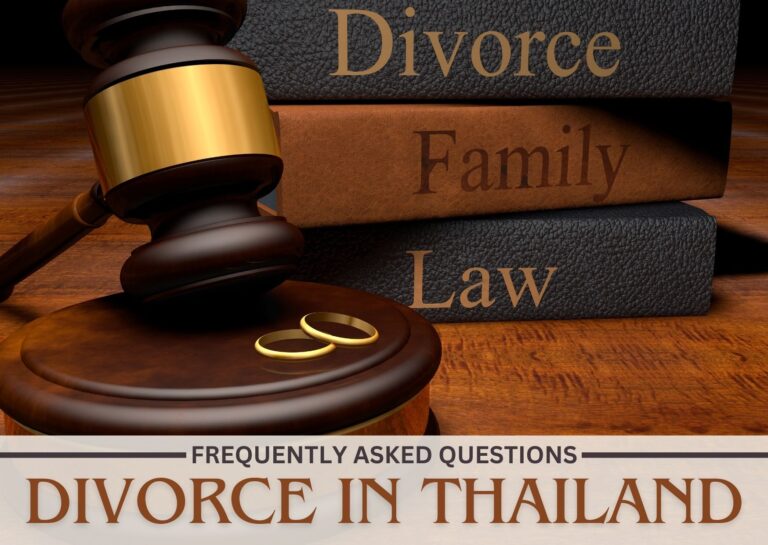
Speak to our divorce lawyers and family lawyers at Magna Carta Law Firm before signing any agreements concerning divorce in Thailand. They will guide you on what you need to know and will help you file for divorce in Thailand.
Uncontested divorce is a marriage termination by mutual consent. Contested divorce is when one or both spouses do not agree with the terms of the separation or have broken the marriage agreement. While a couple may agree to divorce, things could become complicated. Parties may contest some important conjugal matters, such as child custody and the sharing of properties.
The procedure is typically faster and cheaper as there is no need for representation in court. This allows for the preservation of both parties’ privacy. There is less emotional stress involved for both parties, as well as for their children and respective families, as it enables the couple to end their marriage in a civilized manner. You lose control of the divorce process once a judge turns over the decision. The judge may come up with an arrangement that neither of you will be comfortable with. He may also come up with a property settlement where you lose things that were more valuable to you.
Uncontested divorce is possible only if the couple has no disagreements over children or property. Filing for an uncontested divorce is as simple as registering your marriage. You can complete the process in one day at the local district office.
There is no need to have grounds for divorce. The couple’s mutual decision to end the marriage is enough.This must be in writing with at least two witnesses. You need to present all relevant documents, complete the proper forms, and answer important questions, and then the registrar office will issue a divorce certificate.
This type of divorce only applies if the couple is married in Thailand. Marriages outside the Thai jurisdiction that wish to file for divorce in Thailand shall have to go through the court system.
A settlement or divorce agreement has provisions about the terms of sharing of assets, child custody and child support, alimony, and other important matters. It is best that you decide these matters beforehand and formalize them in a divorce contract. This will guarantee that there are no disagreements before you go to the registration office. The divorce registration will specify the details of the divorce conditions.
No. Each party must physically present themselves to make a personal declaration before the officer of their intention to divorce.
In cases of divorce by mutual consent, the divorce contract will contain an arrangement as to who, both spouses or either spouse, will contribute to the maintenance of the children and how much the contribution is.
In cases of divorce by judgment of the court or where the divorce agreement has no provisions about the children’s maintenance, the court shall determine.
Anything acquired during the course of marriage by way of gift, purchase, or inheritance is considered marital property. Personal property is anything acquired before marriage. When a couple divorces in Thailand, there will be an equal division of all marital properties. Personal property remains with the individual. If both parties agree to the terms, then the proceedings are not complicated. However, if the couple cannot agreeably settle the distribution issues, the court will have to resolve the issues based on Thai law. Furthermore, common debts incurred shall be of equal liability between the couple upon termination of the marriage.
If the marriage was legally registered, divorce by mutual consent takes effect from the time of registration. If all documentation is in order, then you can complete the divorce and its registration in one day.
Divorce by judgment of the Court takes effect on and from the time when the judgment becomes final. However, such judgment may not be set up to prejudice the rights of third parties acting in good faith unless the divorce has been duly registered.
Yes. The filing party or both parties may withdraw the contested divorce case at any time and file an uncontested divorce instead.